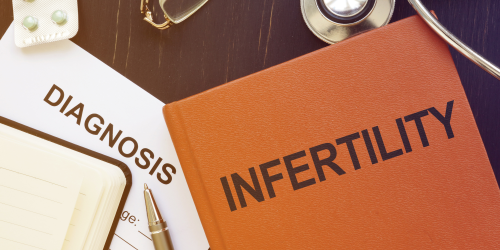Comprehensive male fertility assessment
The most comprehensive male fertility assessment and treatment you can take at home to optimize your reproductive health & accelerate your journey to conception.
All-in-one virtual urology care
At home semen analysis test kit
Dedicated care coordinator
Consult with a urologist and a nurse practitioner
Comprehensive fertility assessment report
If needed get prescriptions & start your treatment plan
What is male fertility and why does it matter?
Men's reproductive health is central to overall well-being, influencing fertility. Sperm quality, erectile function, and prostate health are deeply connected—and disruptions in one can affect the others. Globally, male factors contribute to approximately 50% of infertility cases, and erectile dysfunction affects up to 40% of men over 40.
At Bastion Health, we support reproductive health with a personalized, virtual care model that combines expert guidance, at-home testing, and lifestyle interventions. Whether you're managing fertility concerns or sexual health issues, our men's health specialists are here to help.
Symptoms of male fertility issues
-
Men experiencing fertility challenges may notice symptoms such as:
Low sperm count or poor sperm motility
Difficulty achieving or maintaining an erection
Decreased libido or sexual desire
Pain or discomfort during ejaculation
Testicular pain, lumps, or swelling
Changes in semen volume or appearance
Hormonal changes such as decreased body hair or muscle mass
Mood changes linked to low testosterone or other hormonal imbalances
These signs can be linked to hormonal disorders, testicular conditions, infections, or other underlying issues affecting male fertility. Bastion Health’s virtual urologists specialize in identifying and treating the root causes of male infertility—conveniently and confidentially, from home.
-
Several factors can reduce sperm quality, disrupt hormone levels, or impair sexual function—making it harder to conceive. Understanding these risks is the first step toward protecting your fertility.
Age (40+): associated with lower sperm quality, reduced volume, and higher DNA fragmentation.
Varicocele: enlarged veins in the scrotum that impair sperm production.
Testicular conditions: injury, undescended testes, or infections that affect sperm development.
Ejaculation dysfunction: issues like retrograde or absent ejaculation that prevent sperm delivery.
Low testosterone–related infertility: can lead to low or no sperm production.
Chronic health conditions: diabetes, obesity, and hypertension can reduce sperm quality and function.
Genetic factors: includes Klinefelter syndrome, Y-chromosome deletions, and CFTR mutations.
Lifestyle factors: smoking, alcohol, poor diet, inactivity, stress, and steroid use can all impact fertility.
Environmental exposures: heat, pesticides, radiation, BPA, and other chemicals may harm sperm.
-
Ignoring reproductive health issues can lead to complications such as infertility, hormonal imbalances, and mental health strain. Taking action early allows for effective diagnosis, treatment, and improved long-term health outcomes. Bastion Health empowers men to take charge of their reproductive health through accessible telehealth services and expert care.
Male fertility screening and diagnosis
-
Early screening is key to identifying and addressing male fertility issues before they become long-term barriers to conception. Many causes of infertility are treatable, but only if caught early.
Male factors contribute to approximately 50% of infertility cases—early evaluation can identify issues like low sperm count or motility.
Sperm quality has declined 50–60% over the last 40 years, making proactive fertility checks more important than ever.
Low testosterone affects up to 1 in 5 men and can impair sperm production, even without obvious symptoms.
Many fertility-impacting conditions like varicocele or testicular abnormalities are symptomless and only detected through screening.
Early screening improves the chances of conception and allows for timely, effective treatment.
Bastion Health makes it easy to take early action with at-home fertility screening and expert virtual care.
-
Bastion offers convenient, discreet at-home screening options, including:
Semen analysis: evaluate sperm count, motility, and morphology
Hormonal panels: test testosterone, FSH, LH, and prolactin
Symptom review and telehealth visit: connect with a licensed provider to interpret results and build a care plan
No waiting rooms, just simple answers and expert guidance at your convenience
-
In some cases, advanced diagnostics may be recommended:
Genetic testing: identify inherited fertility issues
Scrotal or pelvic ultrasound: detect structural abnormalities
Comprehensive hormone profiles: deeper insights into endocrine function
Your Bastion provider will guide you through each step, ensuring that every test and treatment supports your health goals.
What parameters are tested?
Male fertility treatment options
-
Male infertility due to low sperm count or poor sperm quality
Low testosterone affecting sperm production
Ejaculatory dysfunction blocking sperm delivery
Varicoceles causing overheating and reduced sperm quality
Testicular issues like injury, infection, or developmental problems
Early testing and treatment can improve fertility. Bastion Health offers at-home screening and virtual care to help you act early.
-
Our care team builds customized plans that may include:
Medication management (TRT, ED meds, fertility meds)
Lifestyle guidance and nutrition plans
Ongoing monitoring and care via telehealth
You’ll have access to ongoing support and clinical insights—all from home.
-
For cases that require further intervention, Bastion may refer you to:
Urologic procedures (e.g., varicocele repair)
Sperm retrieval techniques for ART
Reproductive endocrinology specialists
We coordinate care with trusted specialists to ensure continuity and results.
Whole-person care for men’s fertility
-
Low bone density
Metabolic syndrome
Testicular and prostate cancer
A holistic approach helps identify and manage associated conditions. Our Urologist will support the whole-person care for men’s reproductive health.
-
Reproductive health concerns can impact emotional well-being. Bastion offers support for:
Anxiety and depression
Relationship and intimacy issues
Confidence and identity challenges
We offer referrals and resources for individual and couples counseling.
-
Men may also benefit from:
Acupuncture or pelvic floor therapy
Nutritional supplements (zinc, omega-3s, CoQ10)
Advanced hormone optimization programs
Your Bastion care team helps evaluate and recommend evidence-based options.
Developed by top physicians
“Information garnered from the at-home hormone testing panel and semen analysis allow us to make a comprehensive male fertility assessment, and if needed design a treatment plan that helps men optimize their reproductive health”
Justin Houman, MD
Bastion Health Urology Medical Director, Board-certified Urologist, and Men’s Sexual and Reproductive Health Specialist
Comprehensive men’s health
At Bastion Health, no two treatment plans are the same.
Our team of board-certified urologists and dedicated care coordinators work together to create a personalized plan tailored to your unique needs. Through our virtual platform, you’ll get expert guidance, at-home testing, and ongoing support—designed to help you take control of your health, your way.
Prostate Health
Hormonal Health
Urinary Tract Infection
STD/STI Screening
Colon Cancer Screening
Reproductive Health
Digital At-Home Health Support
Sexual Health
FAQs
-
Male infertility can result from low sperm count, poor sperm motility, hormonal imbalances, genetic conditions, infections, or lifestyle factors such as smoking, excessive alcohol consumption, and obesity. Underlying medical conditions like varicocele or testosterone deficiencies can also contribute.
-
Maintaining a healthy diet, exercising regularly, avoiding smoking and excessive alcohol, managing stress, and staying hydrated can support reproductive health. Regular check-ups and hormone level assessments can help detect and address potential issues early.
-
Signs of male fertility issues may include difficulty conceiving, low sperm count, changes in ejaculation (such as reduced volume or retrograde ejaculation), testicular pain or swelling, and a history of undescended testes or injury. These symptoms can be subtle, so fertility testing is often the best way to identify underlying
-
Fertility testing should be considered if pregnancy hasn’t occurred after 12 months of unprotected sex. Men with a history of testicular injury, undescended testes, ejaculation issues, or prior surgeries may benefit from earlier testing. A standard evaluation includes semen analysis and other tests to assess sperm quality and potential physical or genetic causes.











































